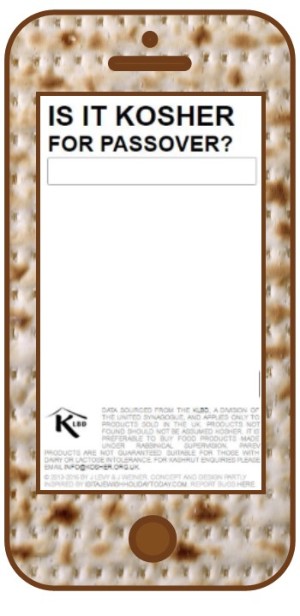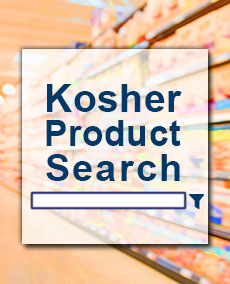One of the first commandments given to human beings concerned food. Adam and Eve were told not to eat the fruit of the Tree of Life. Ever since, Jews have placed great emphasis on gastronomic self-control.
The main principles of kashrut (kosher laws) are laid down in the Torah and are classified as ‘statutes’. These laws have baffled even the greatest thinkers throughout the centuries. Some have suggested that keeping kosher is good for one’s health, whilst others advise that it is more hygienic.
The truth though, is that there is no rationale given in the Torah for the kosher laws, other than God has told us to. The verse which sums up the chapter in which these laws are set out reads: “For I am the Lord your God; sanctify yourselves therefore and be holy, for I am holy; neither shall you defile yourselves with any manner of swarming thing that move upon the earth.” (Leviticus 11:44). This idea is repeated later (Leviticus 20:25-26). In the repetition of the Dietary Laws in Deuteronomy (14:21) the same rationale is given: “Because you are a holy people to the Lord your God.”
Whilst we don’t know why keeping kosher makes us holy, that seems to be the underlying theme that consistently runs with these laws. Eating in Judaism is not just about enjoying ourselves, it is about fuelling our bodies to serve God as best we can.
Below we cover the main topics in kashrut.
Meat & Milk
Central to maintaining the laws of keeping kosher is the separation of meat from milk. The prohibitions against mixing them are very strict, in some respects more so than other kashrut regulations.
This is why it is necessary to have different sets of cutlery, crockery, cooking utensils and washing-up-bowls for meat and dairy meals. A dishwasher should be used solely for meat or milk dishes but not both.
Food that is neither meat nor dairy is called 'parev' (neutral). Parev utensils, like salad bowls or drinking glasses, can accompany both milk and meat meals. Ordinary non-absorbent glass may be designated parev but Pyrex and other oven proof dishes glass must be designated either meat or milk.
We not only avoid mixing meat and milk at the table. We also abstain from eating dairy foods after meat until some time has elapsed. The Shulchan Aruch, the Code of Jewish law, actually records two traditions, one of waiting for one hour (which the Dutch still adhere to) and one for six. The prevailing Anglo-Jewish custom is to wait three hours. In the case of eating meat after milk, the same interval applies only after eating hard cheese.
In order to prevent confusion, bread should always be made parev, and therefore must be made without butter or milk.
Fish & Meat
Another rule is not to eat fish and meat together - but for a different reason to that of meat and milk. It is simply that the Rabbis, advocates of a healthy lifestyle, believed it physically harmful. Therefore one shouldn't use Worcestershire Sauce, which is made from anchovies, in the preparation of a meat dish.
It is permissible to eat meat immediately after fish and vice versa, for example a salmon canapé after a cocktail sausage, but it is the custom to cleanse the palate first by having some bread or a drink.
Birds
The Torah lists only the birds which are forbidden to eat, such as ostriches, owls and vultures. We cannot be sure of the true identity of the species listed, but by tradition, we can eat poultry such as duck, chicken, goose and turkey. A Germanic tradition also allows sparrow!
Meat and Koshering Process:
The basic rules about which animals, birds and fish are kosher are set out in Leviticus, chapter 11. Animals must have cloven hooves and chew the cud, for example goats, sheep, cattle and deer. Venison is no longer available for kosher tables only because according to agricultural regulations, deer must be shot in the open field and not brought into an abattoir.
Shechita
Kosher meat and poultry must be prepared by shechita, a swift cut by a razor-sharp knife, which Jews believe to be the most painless means of slaughtering the animal. After shechita, the animal must undergo a thorough inspection (bedika) to check if there are any blemishes which according to Jewish law render it unkosher. The lungs of cattle and intestines of chickens are also checked.
This is where the term ‘glatt kosher’ comes in. In the case of cattle, if the lung is free of adhesions, it is termed ‘glatt’ - smooth. If there are adhesions, the animal may still be kosher, though not glatt, provided these leave no hole when they are taken off.
Nikur - Porging
Before the meat reaches the shop counter, there is one more process to undergo - nikur, porging. This entails the removal of a number of veins and forbidden fats. Because porging is so tricky in the hindquarters of an animal, it is not carried out in most Diaspora communities and this part of the animal is sold to the non-Jewish market. The hindquarters, incidentally, contain the sciatic nerve which the Bible mentions as being forbidden to the Children of Israel because it was where Jacob was wounded in his wrestling match with the angel.
Melicha - Salting
Finally, to be fit for kosher use, the meat must be drained of any remaining blood - the consumption of which is strictly forbidden by the Torah. That is why it must be soaked and salted before food preparation. Nowadays, most meat is koshered by the butcher before being sold. Liver has to be roasted by a naked flame since it is full of blood.
Eggs
Because of the prohibitions against eating blood, it is customary to check eggs once opened and before cooking, so as to reject any with blood spots. There's no requirement, however, to check them before hard-boiling. White eggs on sale commonly have fewer blood spots than brown ones but not for any biological reasons: it is because in the factory ‘candling’ process, white eggs with bloodspots are easier to detect and thus are rejected before they reach the shops.
Fish
While there are a few available varieties of kosher meat or poultry; this is not true of fish. To comply with kosher requirements, a fish must have fins and easily detachable scales. The scales of a sturgeon are extremely hard to remove, hence it is non-kosher, as is its precious roe, caviar. All shellfish, eels, shark, monkfish, huss and catfish fail the kosher test. Fresh or frozen fish should be bought with the skin on so you can check the scales. Check Isitkosher to find out which species of fish are permitted.
Milk
Since it is not possible to distinguish kosher milk (milk from a kosher animal) from non-kosher milk, Rabbinical law requires that milk be supervised from the point of milking until it is bottled in order to guarantee that it comes from a kosher animal. In countries where the source of milk offered for sale is guaranteed by civil law (such as the UK), some authorities rule that all milk is guaranteed as kosher and need not be supervised. Supervised kosher milk (Chalav Yisrael) is widely available nowadays in the major centres of Jewish life.
Cheese
When it comes to cheese though, the rules are tighter. All cheese must be Rabinically certified. This is because the curdling agent, the rennet, is often derived from an animal source - usually a calf's stomach. The Rabbis in the Talmud ruled that all cheese must come from a supervised source, even where the rennet was made from herbs. As a result, vegetarian cheeses cannot be used unless they have a Rabbinic seal.
Wine
Wine and grape juice must come only from a Rabbinically approved source. The Sages put a ban on non-Jewish wine primarily as a safeguard against intermarriage, believing that by drinking-out one might end up dating-out. Hence products like brandy and wine vinegar must also carry a Rabbinic seal.
As it happens, non-kosher ingredients are used in in the manufacture of non-Jewish wines, such as bull's blood for colouring or more commonly, isinglass, a ‘fining’ agent which comes from a sturgeon; another reason for avoiding them.
Bread
Bread which is not kosher certified is not permitted because it may be made with fats, emulsifiers or improvers of animal origin. Release agents used to grease production equipment may be non-kosher and the equipment itself may be used for non-kosher products. See list of KLBD Supervised Bakeries.
One should always buy Pas Yisrael bread - Jewish baked kosher bread - whenever possible. Pas Palter - bread produced in a non-Jewish commercial bakery with kosher ingredients - may be purchased when no similar Pas Yisrael product is readily available, provided it is kosher certified.
Processed Foods
In the 21st century, kashrut has had to contend with a whole new challenge; processed foods. Thanks to the efforts of kosher food technologists, thousands of products on the shelves have been cleared for use by Jewish consumers. Increasingly, more products carry a kosher label - like the KLBD, Kosher London Beth Din logo. Many others listed have been approved after rigorous inspection of the ingredients and the procedures used in manufacturing them.
Each ingredient and food additive has to be individually checked to ensure it does not derive from a non-kosher source. Many seemingly innocent products such as yoghurt may contain gelatine. Spices may contain stearic acid salts and even breakfast cereal may contain glycerine, all of animal origin. Even where the ingredients are kosher, the product may still be non-kosher because of other unlisted agents used in its manufacture - such as release agents used to grease the production line.
Even when a product is suitable for vegetarians, it may still be non-kosher if the factory has prepared it on equipment which has been previously used for products containing meat. Thus, with the ever increasing sophistication of food technology, The Really Jewish Food Guide and the Isitkosher search have become essential for every Jewish Home.
Biscuits
These are usually made with non-kosher margarine. Those made with butter may still not be kosher, as tins may be greased with non-kosher fat and no indication of this will appear on the label. Cakes present the same problems. In common with all other cooked products, cakes and biscuits whose own ingredients are perfectly acceptable, may be cooked in tins or pans used for non-kosher products or in ovens together with non-kosher products. For these reasons, each item must be considered individually.
Margarines
They contain fats and emulsifiers which may be of animal origin; even the manufacturers of ‘vegetarian’ margarine cannot always guarantee that the source of their emulsifier is vegetable. Only margarine under Rabbinical supervision can be used.




